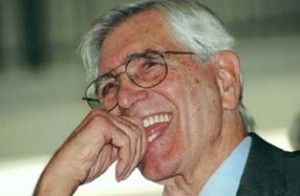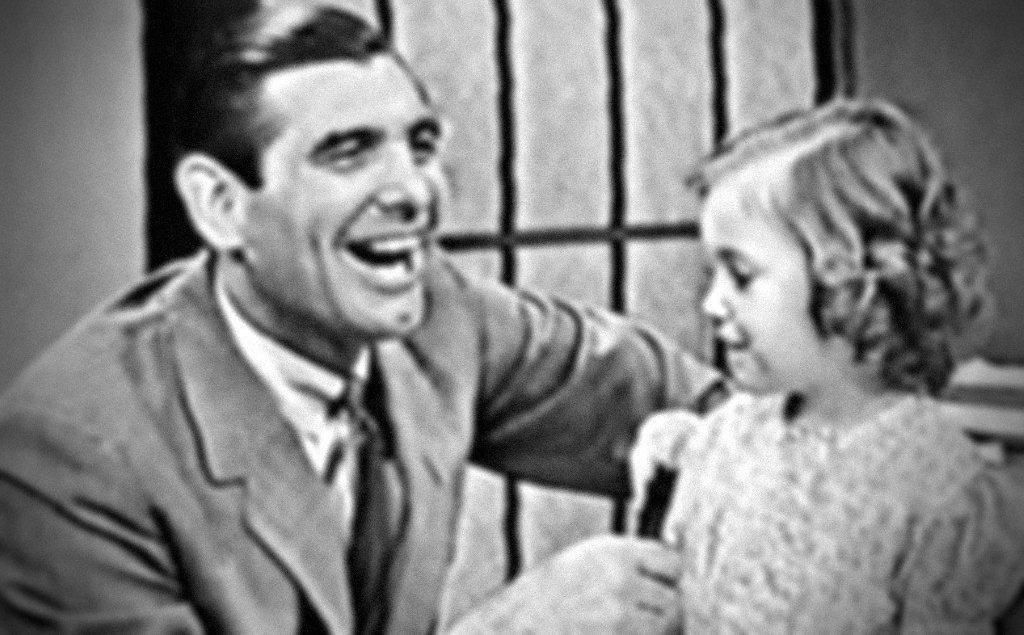Beloved 1960s Children’s Television Host And Flatbush Native Sonny Fox, Dead at 95

Sonny Fox, the television host of the beloved 1960s New York-based Sunday children’s program, Wonderama, has died at 95. Fox died on Sunday, of pneumonia, due to COVID-19, in Los Angeles. His death was confirmed by his official website.
In 1959, the New York independent television station Metromedia hired Fox to replace Wonderama hosts, Bill Britten and Doris Faye. The show ran four hours every Sunday with Fox as its host. Segments included cartoons, musical chairs, spelling bees, magic tricks, and prizes. Fox became a leading name in television in New York City, as he captivated children every Sunday for eight years.
“The joy of doing Wonderama, was that I loved exploring the kids’ minds,” said Fox. Fox said that he could take the children anywhere, even try to explain theories such as Elements of the Theory of Relativity, which didn’t work out as he planned. Fox checked the rating the next day, to see if he had dropped any points he didn’t lose one, he said.
“Their loyalty was so intense, that I could take them anywhere,” said Fox in an interview with the Television Academy Legends
Fox was born on 17 Jun 1925 into a traditional Jewish family in Flatbush. “Now you have all different names for it, but it was just Flatbush when I lived there,” Fox told Bklyner in a 2015 interview ahead of a fundraiser he was hosting for his former elementary school, PS 217.
His name was Irwin, named after his paternal grandfather. Sonny was his nickname.
Fox grew up in Brooklyn, the son of a textile converter Abe Fox, and his mother, Gertrude Stein Fox. Fox attended P.S. 217, then Erasmus Hall in Flatbush, then James Madison High School in Sheepshead Bay, where famous Jewish politicians such as senators Bernie Sanders and Chuck Schumer, and the late Supreme Court Justice Ruth Bader Ginsburg also graduated from. Fox’s mother pushed him ahead in school, and he graduated early, in 1942.
“A month before I graduated, World War II broke out, and even though I was only 16-and-a-half, I knew I would be drafted eventually,” Fox told Bkylner.
Until he was drafted, Fox took classes at NYU, where he discovered radio production.
“About three months into it I realized this is what I want to do,” he said.
Fox was drafted for the war and sent to Europe on the Queen Elizabth 1. In 1944, Fox was taken as a prisoner of war by German troops for three and a half months. “One of the things that first happens to you when you go into prison camp is that you lose any sense of having control over your life,” said Fox in an interview.
“You sort of surrender yourself into knowing you no longer have any ability to control what goes on. You can’t decide what to eat. You can’t decide what to do, you can’t go away. And so you sort of end up with this feeling of helplessness and surrender,” said Fox.
At the end of that war, as German troops fled, Fox and the American group stayed behind, convincing the Germans that they were too ill to move, said Fox. Left behind, Fox and the rest of the American POWs waited as the defeated German army passed and allied forces came in. “At about four o’clock in the afternoon,” the American tanks came down, said Fox. “About two hours later the first Jeep came in, and I was sitting on the roof by that time with our guys to see this whole thing. And when the Jeep came in, the first thing I said was ‘My God, they’re fat!’’ The American troops, who were all of normal weight were fat to Fox, he said, because he was so thin.
“I left a skinny, uncertain kid from Brooklyn. And I came home a much different person,” said Fox.

During the war, Fox served as a wartime correspondent for The Voice of America in Korea in 1950. Fox then hosted game shows, The $64,000 Challenge, and The Price is Right.
In 1967, Fox left Wonderama to co-host an adult talk show, The New Yorkers, on WNEW-TV. In 1976 Fox hosted the California-based show Way Out Games, in 1977, he ran children’s programming for NBC, and he also served as a lecturer at the State University of New York Stony Brook in the 1970s and went on to become the chairman of the board for New York-based nonprofit Population Communications International (PCI), which works to improve family planning issues through popular media.
Although Fox’s work in the media industry continued, he is most well known for his years hosting Wonderama. Fox continued to receive letters and emails from adults who grew up watching Wonderama, such as the letter from a woman called Daria. In her letter, Daria wrote of how important Fox and Wonderama were to her and her siblings. “Each time we watched your show..it always gave us a feeling as if we were right there…in the audience with the rest of the children,” read the letter.
In 2012, Fox’s memoir But You Made The Front Page: Wonderama, War, and a Whole Bunch of Life was published.
“You know, when you have a career that expands from 1947 to 2008, picking out a highlight, I’m tempted to say ‘I’m here.’ That’s the highlight,” said Fox when asked what the highlight of his career in an interview.
“Seriously speaking, I appreciate so much of what I’ve been talking about and I have wonderful memories. I can’t wait to wake up in the morning and figure out what the next page is. Somebody once asked me for an interview ‘what are the fantasies in your life?’ And that stopped me. I said ‘you know, I don’t have any fantasies. The reality of my life has so far exceeded my childhood fantasies. I don’t have fantasies. I have a life.’
When asked, in an interview, how he would like to be remembered, Fox said, “as someone who cared more than just being a television personality or a star, or a producer. Who understood the context. Who also had a profound sense of wonder at the journey he has taken. From that unsuccessful adolescent Brooklyn, to where I’ve come,” said Fox.
“I’d like to be remembered as someone who understood and appreciated the moments as they happened. Not just in retrospect. I knew as I was doing what I was doing how special all of this was,” he added.




